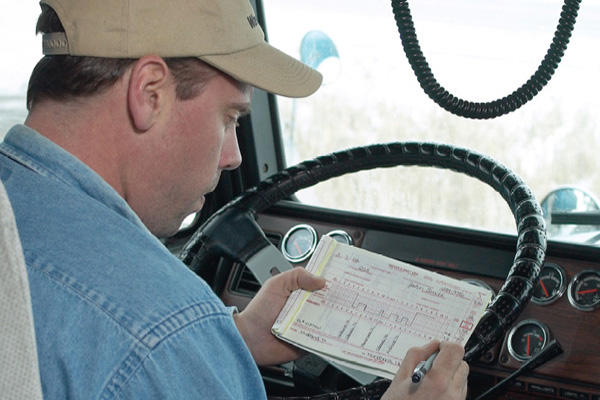WASHINGTON – The U.S. Department of Transportation's Federal Motor Carrier Safety Administration (FMCSA) today announced it has awarded $1 million in grants to nine technical and community colleges across the country to help train returning military veterans for jobs as commercial bus and truck drivers. The funding is provided through FMCSA's Commercial Motor Vehicle - Operator Safety Training (CMV-OST) grant program.
"Those that we entrust to protect and serve our nation deserve opportunities that utilize the skills and training they received on the job on military bases overseas and at home," said U.S. Transportation Secretary Anthony Foxx. "We can think of none more appropriate to safeguard our highways as commercial vehicle drivers than the thousands of veterans who have already proven they can safely handle large vehicles under extremely stressful circumstances."
"These unique grants are designed to help recruit, train and place veterans and their spouses in good jobs that are in high demand and in an industry that is vitally important in keeping our national economy moving forward," said FMCSA Acting Administrator Scott Darling. "Graduates of these training programs are continuing to serve our nation by ensuring that the goods and products we depend on are delivered professionally, efficiently and, most importantly, safely."
FMCSA awards CMV-OST grants to organizations that provide truck driving training, including accredited public or private colleges, universities, vocational-technical schools, post-secondary educational institutions, truck driver training schools, associations, and state and local governments, including federally-recognized Native American tribal governments. The funds are used to recruit, train, and provide students job placement assistance after graduation.
The 2014 FMCSA grants announced today will provide training for nearly 400 new students. The awards were made to the following organizations:
- Florida – South Florida State College, Avon Park, Fla., $58,003
- Illinois – Joliet Junior College, Joliet, Ill., $165,800
- Minnesota – Century College in White Bear Lake, Minn., $91,080
- Missouri – Crowder College, Neosho, Mo., $72,160
- Nebraska – Metropolitan Community College, Omaha, Ne., $47,614
- Pennsylvania – Northampton County Area Community College, Bethlehem, Pa., $134,400
- Pennsylvania – The Sage Corporation, Camp Hill, Pa., $249,968
- Texas – Lone Star College-North Harris, Houston, Texas, $73,704
- Virginia – Tidewater Community College, Norfolk, Va., $107,271
The Commercial Motor Vehicle - Operator Safety Training Grant Program was established by Congress in 2005 through the Safe, Accountable, Flexible, Efficient Transportation Equity Act – A Legacy for Users (SAFETEA-LU), to expand the number of commercial driver's license (CDL) holders possessing enhanced operator safety training to help reduce the severity and number of crashes on U.S. roads involving large trucks and buses.
In July 2014, FMCSA announced that the Military Skills Test Waiver Program had been expanded to include all 50 states and the District of Columbia. Under this program, state licensing agencies have authority to waive the skills test portion of the CDL application for active duty or recently separated veterans who possess at least two years of safe driving experience operating a military truck or bus. Waiving the skills test expedites the civilian commercial drivers licensing application process and reduces expenses for qualified individuals and operating costs to state licensing agencies.
FMCSA also announced this summer that, commencing with Virginia residents, returning military service personnel who possess a state-issued Skill Performance Evaluation (SPE) certificate due to a limb impairment will automatically be recognized as equivalent to an FMCSA-issued SPE certificate and allowed to obtain an interstate commercial driver's license (CDL). FMCSA encourages other state licensing agencies to establish comparable equivalency SPE programs.











